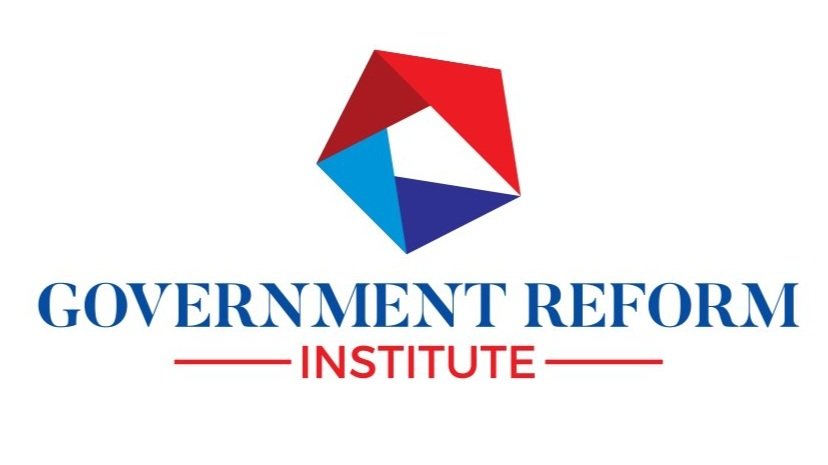The Government Reform Institute (GRI) provides practical, actionable solutions that address inefficiencies, break down bureaucratic barriers, and support reform implementation. The Institute engages with policymakers, veterans’ groups, industry leaders, and think tanks to recommend policies that strengthen our government’s ability to meet 21st-century challenges.
In pursuing this mission, GRI also serves as a trusted source of information and advocacy, working to ensure that national security funding is spent efficiently to deliver maximum warfighting capability and robust support for the veterans who have served our nation.
The Challenge
National defense resources compete with other critical priorities, and debates over how to allocate them are constant—and often contentious. At the heart of this challenge lies a fundamental question: What should be prioritized when not everything can be done?
The imperative is clear: maximize outcomes while minimizing overhead. Yet too often, structural, managerial, and operational practices remain rooted in outdated paradigms, failing to adapt to today’s fast-changing, chaotic, and increasingly dangerous global landscape. The Department of Defense (DoD) structure reflects this disconnect, commanding more resources than ever before, yet fielding a smaller combat force than at any point in modern history.
This challenge is magnified by the broader fiscal environment. Since 1991, mandatory spending (e.g., Social Security, Medicare, and other entitlements) has surpassed discretionary spending, the portion of the budget addressed annually in the twelve appropriation bills. Today, mandatory spending is double that of discretionary spending—and continues to grow, along with crushing deficits and interest on debt.
In this context, the words of Deputy Secretary of Defense Stephen Feinberg resonate when he emphasized the need for a modernized approach: “This is about more than efficiency — it's about designing a workforce and structure that moves at the speed of today's challenges.”
GRI’s mission aligns with this commitment to modernization and efficiency. By identifying immediate challenges, breaking down bureaucratic barriers, and proposing actionable solutions, GRI aims to drive real, measurable improvements in government operations.
Looking ahead, the United States must ensure that every dollar spent on national security delivers the greatest possible impact: enhancing warfighter readiness, increasing force lethality, and improving outcomes for those who serve. Or, put more simply: How do we get the biggest bang for the buck?
GRI exists to help answer that question. Through rigorous research, strategic engagement, and actionable recommendations, GRI will continue to spotlight the most pressing issues, propose practical reforms, and support the leaders in the Pentagon and in Congress working to modernize and strengthen our national defense enterprise.
Focus Area
It is hard to explain to the American taxpayer and our brave warfighters why today’s defense budget supports a force that is fifty percent smaller and less ready than in the past, despite significantly higher costs.
While GRI will continue to explore a range of issues, including the congressional budget process and the national security committee structure, an immediate priority is supporting the Department of Defense’s efforts to implement major reforms across the defense enterprise. Key focus areas include: human resources and personnel management, real estate management, logistics, healthcare, community services, information technology, financial management, and the requirements and acquisition process. GRI will also continue to examine how the Department of Veterans Affairs (VA), with its increased budget and growing workforce, can better deliver on its promise to support and serve our veterans.
Through ongoing research, strategic partnerships, and public engagement, GRI will continue to identify practical, results-driven approaches that strengthen the effectiveness of both DoD and VA operations, and support the development of national security and veteran support efforts that are responsive, efficient, and aligned with today’s complex challenges.
Meet Our Founder.
-

Arnold Punaro
FOUNDER
Arnold Punaro is chief executive officer of The Punaro Group, LLC, a Washington-based firm he founded in 2010 that specializes in federal budget and market analysis, business strategy, acquisition due diligence, government relations, sensitive operations, business risk and compliance, and crisis management. He advises a broad range of Fortune 100 companies and has been recognized by Defense News as one of the 100 most influential individuals in U.S. Defense.
Mr. Punaro has served two terms as Chairman of the National Defense Industrial Association (NDIA), the nation’s largest defense industry association. From 2011 to 2023, he chaired the Reserve Forces Policy Board, serving as an independent advisor to the Secretary of Defense on Reserve and National Guard matters. He was also a founding member of the Defense Business Board where he served for two decades.
A retired Marine Corps Major General, Mr. Punaro has commanded a Marine division and spent 24 years of service on Capitol Hill, including 14 years as staff director of the Senate Armed Services Committee. In the private sector he was the executive vice president of an $11 billion technology and professional services firm.
He is the author of three books: On War and Politics: The Battlefield Inside Washington’s Beltway (published in 2016), The Ever-Shrinking Fighting Force (published in 2021), and If Confirmed: An Insider’s View of the National Security Confirmation Process (published in 2024).
Of note: The Ever-Shrinking Fighting Force offers a powerful and urgent case for reforming the Department of Defense, drawing from decades of experience across the military, government, and private sector.

